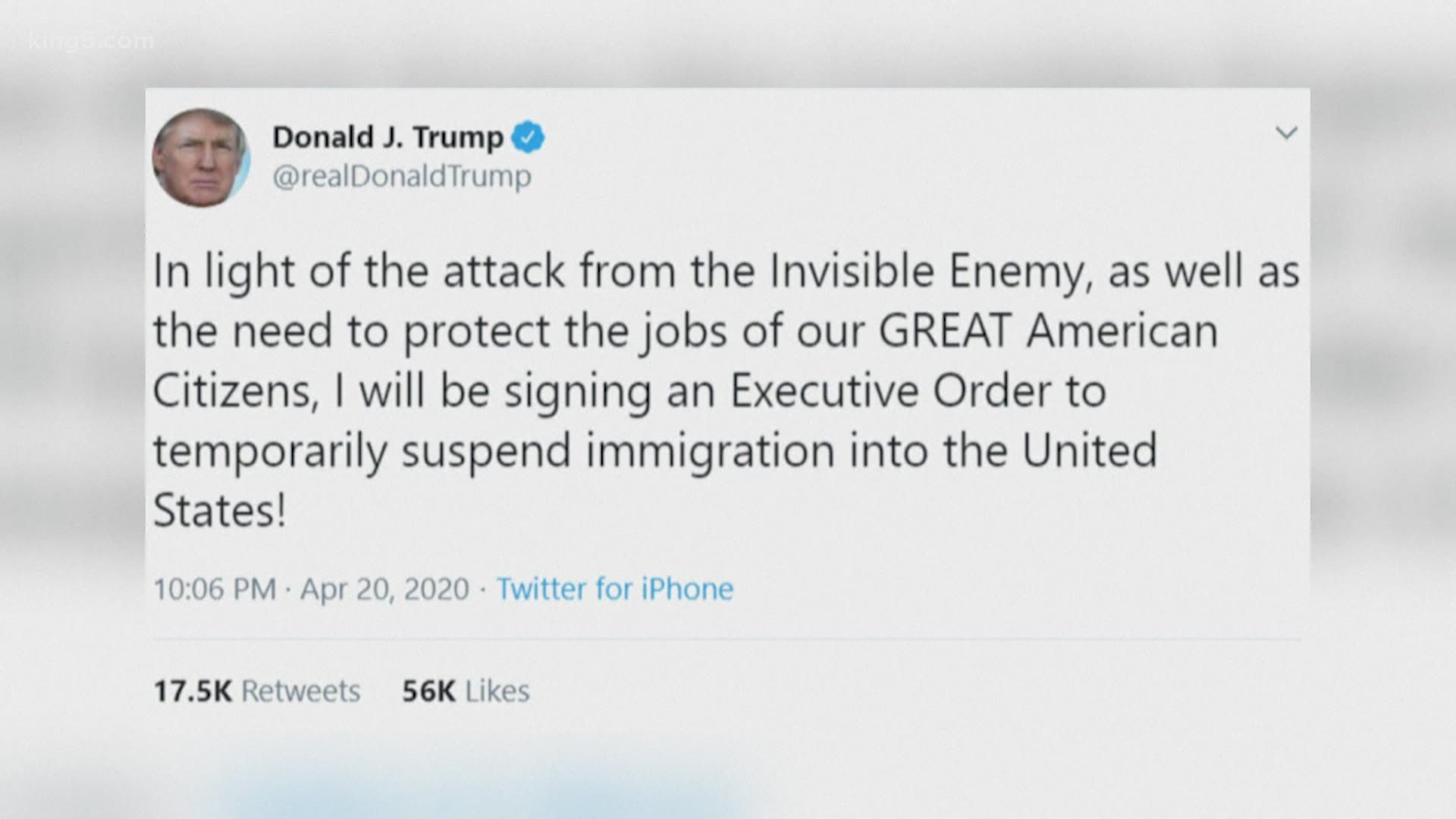WASHINGTON, D.C., USA — President Donald Trump announced what he described as a “temporary suspension of immigration into the United States” on Tuesday, an executive order barring those seeking permanent residency green cards but not temporary workers.
Trump said he would be placing a 60-day pause on the issuance of green cards in an effort to limit competition for jobs in a U.S. economy wrecked by the coronavirus. But he said there would be “certain exemptions” included in the order, which staff were still crafting Tuesday.
It was an announcement that created new uncertainty for people who recently moved to the U.S. and the Puget Sound region.
“I woke up this morning and I heard this news about, you know, the immigration process index that expanded by now and you know, the green card processes are stopped. So, you know, I was I felt really unstable and I can't really do anything about it,” said Aisulu Omar of Seattle.
The Kazakhstan native moved here four years ago for a tech job and says she is a current green card holder.
“I feel like it's a scary thing, you know, to think about like, you live in a country that treats immigrants in that way. You know, it's just it feels it feels like a scary thing.”
Xiao Wang is the founder and CEO of Seattle-based Boundless, which seeks to provide help to people going through the immigration process. He said his company has helped 100,000 people with the path to citizenship, visas, and more over the past year, but the situation is even more complex given the shutdown of certain government offices.
“No one's reading the responses and it's oftentimes impossible for people to gather the evidence that they need. For example, people can't find their birth certificates or their marriage certificates because the local government offices are closed. Or a new requirement is that families need to submit their transcripts from schools. Now, most schools registrar's offices are closed, so people actually can't get the evidence that they need to support the applications. So the government's giving a little more time on that when they do find fault or gaps in applications but for people who are, you know, applying now or who are applying for especially for renewals. There's no clarity over what then happens to their current state, like students who are on student visas, whose school year is about the end. It's unclear what their next step is.”
Washington’s GOP Chairman Caleb Heimlich said in an interview that he was content with the temporary nature of the President’s order.
“I think 60 days is a reasonable timeline. Certainly, we don't support a permanent stay of any kind. But I think a two-month stay to allow us to start getting things back open makes sense.”

